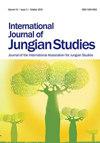Jung’s Fantasies of Africa and Africa’s Healing of Analytical Psychology
Q4 Psychology
引用次数: 1
Abstract
Jung’s dreams about Africa reveal the Whiteness and colonialist assumptions typical of the twentieth century educated European. Jung’s visits to Africa and New Mexico, and his dreams are critically discussed, showing how, even decades later, Jung failed to use his own theory of dreaming with regard to his own dreams. The compensatory function of his dreams was never effected, and his transference fantasies of Africa and blackness were reinforced rather than analyzed. There were unfortunate consequences for the development of his thinking and his understanding of the individuation process, since his oppositional thinking in terms of White and Black remained as a concrete transference fantasy as well as a colonialist attitude towards his internal world. The Nguni term ubuntu, will be used to reimagine individuation in more explicitly ethical and socially embedded ways. With regard to the development of consciousness, a distinction is developed between the withdrawal of projections and as a helpful therapeutic issue and as an epistemological approach to the place of meaning. If Jung’s dreams of Africa had managed to “heal” him, Jungian psychology would look rather like it does today, because the way out of Jung’s Colonialism is to be found in Jung’s life and work, especially in his alchemical studies.荣格的非洲幻想与非洲分析心理学的疗愈
荣格关于非洲的梦揭示了20世纪受过教育的欧洲人典型的白人主义和殖民主义假设。荣格对非洲和新墨西哥的访问,以及他的梦被批判性地讨论,显示出,即使在几十年后,荣格也未能将他自己的梦理论应用于他自己的梦。他的梦的补偿功能从未发挥作用,他对非洲和黑人的移情幻想得到了加强,而不是分析。他的思想发展和他对个性化过程的理解产生了不幸的后果,因为他关于白人和黑人的对立思维仍然是一种具体的移情幻想,以及对他内心世界的殖民主义态度。恩古尼术语“乌班图”将被用来以更明确的伦理和社会嵌入方式重新想象个性化。关于意识的发展,我们区分了投射的撤回,作为一种有益的治疗问题,作为一种对意义所在的认识论方法。如果荣格的非洲梦成功地“治愈”了他,那么荣格心理学就会像今天这样,因为荣格的殖民主义的出路就在荣格的生活和工作中,尤其是在他的炼金术研究中。
本文章由计算机程序翻译,如有差异,请以英文原文为准。
求助全文
约1分钟内获得全文
求助全文
来源期刊

International Journal of Jungian Studies
Psychology-Applied Psychology
CiteScore
1.10
自引率
0.00%
发文量
10
 求助内容:
求助内容: 应助结果提醒方式:
应助结果提醒方式:


